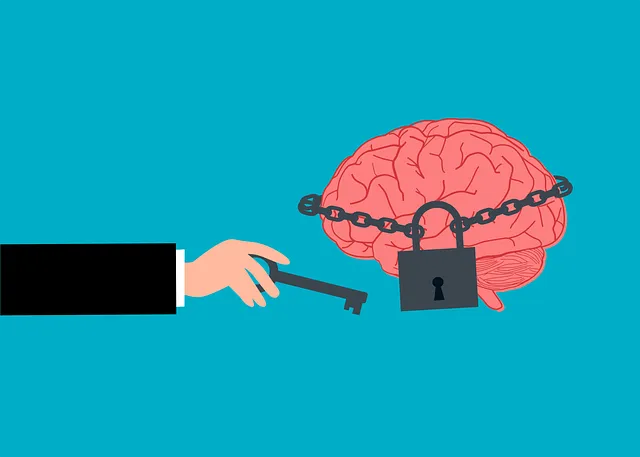In today's fast-paced world, crisis intervention skills are crucial for all. Both Englewood and Kaiser offer distinct inpatient mental health services: Englewood focuses on acute care and rapid stabilization, while Kaiser takes a holistic approach integrating medical and psychological care. Effective crisis intervention involves creating safe spaces, combining immediate support with long-term prevention strategies, and employing techniques like conflict resolution, communication, de-escalation, trauma-informed care, mindfulness meditation, and evidence-based practices. These models empower individuals to navigate crises, promote healing, and foster positive outcomes in diverse urban neighborhoods.
In today’s world, effective crisis intervention strategies are essential for anyone interacting with individuals in mental health crises. This article delves into the critical skillset required to navigate these situations, exploring key components and best practices. We compare Englewood’s and Kaiser’s inpatient mental health services, highlighting the importance of comprehensive training. Understanding crisis intervention is no longer optional; it’s a game-changer in ensuring quality care and fostering supportive environments for those in need.
- Understanding Crisis Intervention: A Necessary Skillset for All
- Englewood vs Kaiser: Exploring Inpatient Mental Health Services
- Key Components of Effective Crisis Intervention Strategies
- Implementation and Training: Ensuring Quality Care in Mental Health Crises
Understanding Crisis Intervention: A Necessary Skillset for All

In today’s fast-paced world, crisis intervention strategies have become an essential skill for everyone, from healthcare professionals to everyday folks. Understanding and responding effectively to crises is crucial for maintaining mental wellness, as evidenced by the growing popularity of the Mental Wellness Podcast Series Production. Whether it’s a personal or communal crisis, the ability to navigate these challenging situations can significantly impact outcomes. Englewood, for instance, like many urban centers, faces complex issues, and Kaiser’s inpatient mental health services play a vital role in such scenarios.
Developing resilience and emotional intelligence is key to mastering crisis intervention. Building resilience equips individuals with the strength to bounce back from adversity, while emotional intelligence enables a deeper understanding of oneself and others during stressful times. These skills are not just for professionals; they empower everyone to contribute positively to their communities, especially in diverse settings like urban neighborhoods. Understanding these dynamics is a game-changer, ensuring that crisis intervention becomes an inclusive and effective process for all.
Englewood vs Kaiser: Exploring Inpatient Mental Health Services

When comparing Englewood and Kaiser in terms of inpatient mental health services, it’s crucial to examine their distinct approaches to providing care. Both organizations offer specialized treatment for severe psychiatric conditions, but their settings and focus differ significantly. Englewood, known for its acute care hospitals, provides a more intensive and focused environment tailored for individuals facing crisis situations. This setting facilitates rapid assessment, immediate intervention, and close monitoring, which are vital for stabilizing patients’ conditions and preventing further deterioration.
In contrast, Kaiser, with its integrated healthcare system, prioritizes a holistic approach that combines medical, psychological, and self-care practices. While still offering inpatient care, Kaiser focuses on long-term emotional healing processes and coping skills development. Patients at Kaiser are encouraged to explore various therapeutic modalities and engage in activities promoting overall well-being, including mindfulness exercises and support groups. This comprehensive strategy empowers individuals with tools for ongoing mental health management, fostering resilience and enhancing their ability to navigate future challenges effectively.
Key Components of Effective Crisis Intervention Strategies

Effective crisis intervention strategies encompass several key components that are vital for providing immediate and meaningful support during traumatic or distressing situations. One such strategy involves establishing a safe and non-judgmental environment, where individuals feel comfortable opening up about their experiences. This safety net is crucial, especially when dealing with sensitive issues like mental health crises, as it encourages honest communication.
Englewood’s approach to crisis intervention often includes a multi-faceted method, addressing both the immediate needs of individuals and preventing potential long-term issues. For instance, Kaiser’s inpatient mental health services play a significant role in providing intensive care for severe cases. Simultaneously, encouraging self-awareness exercises and promoting resilience can empower individuals to manage future crises. Additionally, trauma support services tailored to specific needs can be life-changing, offering coping mechanisms and helping folks move towards healing and recovery, preventing depression and fostering overall well-being.
Implementation and Training: Ensuring Quality Care in Mental Health Crises

In ensuring quality care during mental health crises, effective implementation and training are pivotal. Organizations like Englewood and Kaiser’s inpatient mental health services play a crucial role in this regard. Training programs should equip staff with a comprehensive set of crisis intervention strategies, including Conflict Resolution Techniques and Communication Strategies, to handle diverse patient needs. Regular workshops and simulations can enhance their proficiency in de-escalation techniques, trauma-informed care, and the application of evidence-based practices.
Additionally, integrating Mindfulness Meditation into crisis interventions can offer significant benefits. This practice helps both staff and patients manage stress, promote emotional regulation, and foster a sense of calm during high-pressure situations. By integrating such strategies, mental health facilities can create a supportive environment that enhances recovery outcomes and improves overall patient satisfaction.
In light of the above discussions, it’s evident that both Englewood and Kaiser offer distinct yet crucial inpatient mental health services. While understanding crisis intervention is a vital skillset for all, effective strategies require comprehensive training and implementation. By integrating key components, such as active listening, de-escalation techniques, and cultural sensitivity, mental health professionals can ensure quality care during crises. Therefore, continuous evaluation and enhancement of these strategies are essential to meet the diverse needs of individuals in mental health emergencies.






